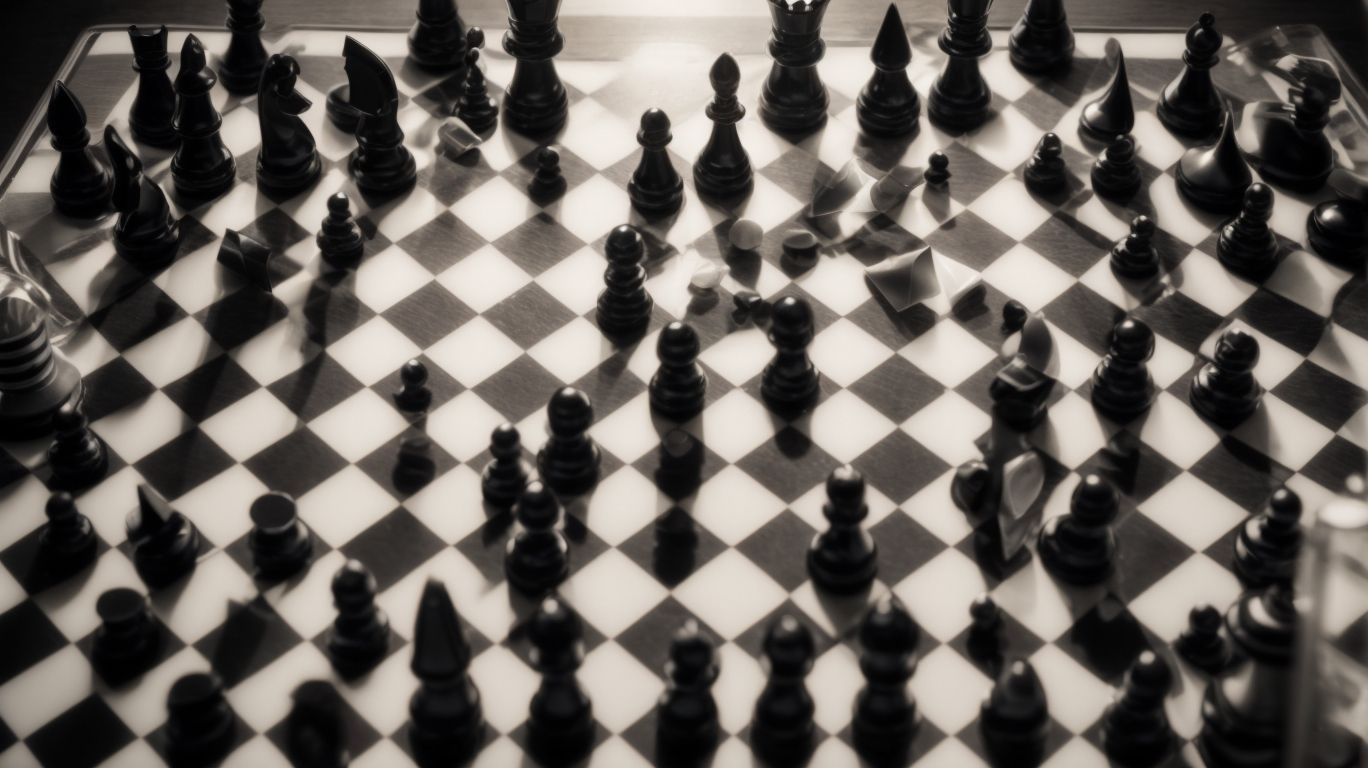Why Even Play Chess?
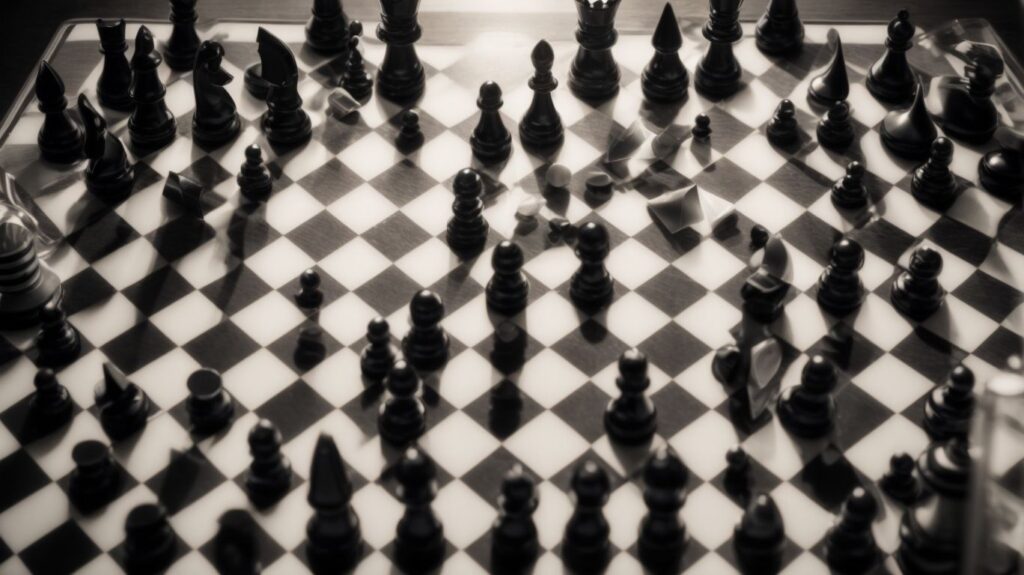
Chess is not just a game; it is a centuries-old strategic masterpiece that has captivated minds around the world.
Explore the origins of chess, its benefits for the mind, and how you can get started with this intellectual pursuit.
Chess offers benefits such as enhancing critical thinking and fostering sportsmanship. Discover the beauty and benefits of chess with us.
History of Chess
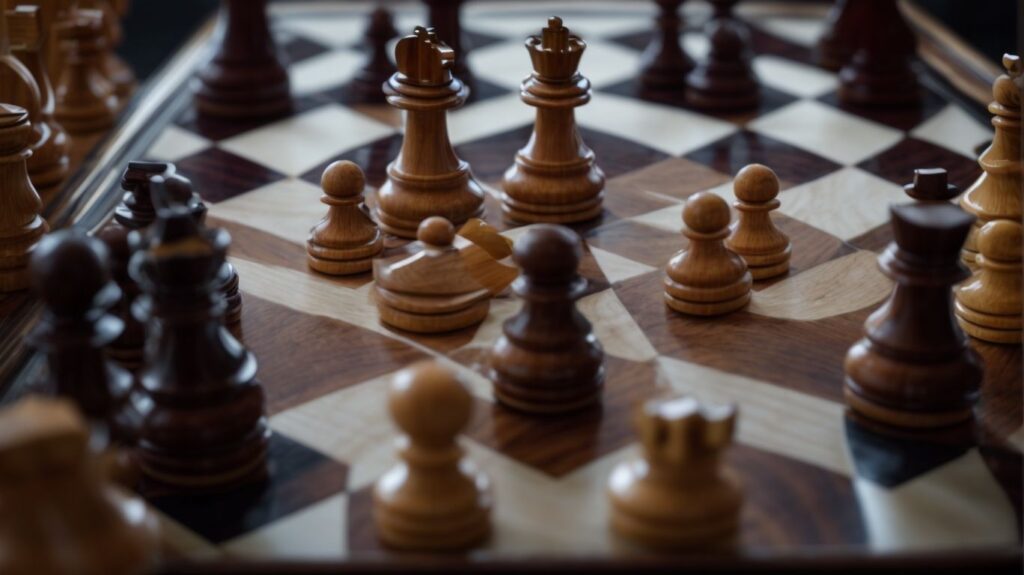
The history of chess is a tale that dates back centuries, traversing continents and cultures with each move on the board reflecting strategic prowess and intellectual acumen.
Originating in ancient India as a game called Chaturanga, chess gradually spread to Persia, where it evolved into Shatranj before becoming the game we recognize today. This strategic pastime not only entertained royalty and commoners alike but also served as a symbol of military tactics, influencing war strategies and shaping critical thinking skills. Its rise in popularity across Europe during the Middle Ages fostered intellectual rivalry among scholars and monarchs, further cementing its role as a timeless game of wits.
Where Did Chess Originate?
The origins of chess can be traced to ancient civilizations, with disputed theories pointing to various regions as the birthplace of this timeless game.
One theory suggests that chess originated in India around the 6th century AD, then known as Chaturanga, a strategic game with pieces representing different military units.
Another belief credits the Persians for the creation of a predecessor game called Shatranj, which spread to the Arab world and later to Europe where it evolved into modern chess.
The rich history of chess includes mentions in ancient literature, such as the Persian epic ‘Shahnameh,’ highlighting the game’s cultural significance throughout the ages.
How Did Chess Spread Across the World?
The spread of chess across the world is a testament to its enduring appeal, as the game transcended borders and languages, captivating players across diverse continents and societies.
Chess, originating in India around the 6th century, travelled along trade routes to Persia and then further to Europe, where it evolved with new rules and strategies. Its cultural significance is evident in regions like Russia, where it became a national sport, and in Western countries, where it symbolizes intellectual prowess and strategic thinking. The adaptation of chess pieces to reflect local cultures led to the development of different board layouts and variations, enriching the game’s global diversity.
Benefits of Playing Chess
Playing chess offers a myriad of benefits that extend beyond the board, enhancing cognitive abilities, fostering strategic thinking, and promoting mental acuity in players of all ages.
One of the marvelous aspects of engaging in a game of chess is that it serves as a mental workout, sharpening reasoning skills and boosting memory retention.
Through the intricate maneuvers and tactics required to outsmart the opponent, players develop problem-solving skills that have real-world applications, making them adept at analyzing complex situations and crafting effective solutions.
Improves Critical Thinking and Problem-Solving Skills
Engaging in chess sharpens critical thinking and problem-solving skills, challenging players to anticipate moves, analyze consequences, and devise effective strategies in a dynamic setting.
When immersed in a game of chess, individuals are constantly engaging their cognitive abilities, forcing them to think several steps ahead and consider various outcomes. This process not only stimulates the brain but also enhances strategic decision-making skills, fostering a deep level of concentration and mental agility. The analytical skills developed through playing chess extend beyond the game itself, impacting problem-solving capabilities in areas of life.
Chess truly acts as a mental gymnasium, sculpting the mind to navigate complex scenarios and make calculated moves with precision.
Enhances Memory and Concentration
Chess boosts memory retention and concentration levels, requiring players to retain complex patterns, recall previous moves, and maintain focus throughout intense gameplay sessions.
These cognitive demands foster the development of strategic thinking skills and enhance problem-solving abilities. By constantly analyzing positions, projecting potential outcomes, and adapting strategies on the fly, players engage their brains in a mental workout that sharpens their cognitive functions.
The necessity to anticipate opponents’ moves and plan several steps ahead challenges memory recall and forward thinking. This mental exercise not only improves memory retention but also hones critical thinking skills crucial for decision-making in various aspects of life.
Increases Creativity and Imagination
Chess fosters creativity and imagination, encouraging players to explore unconventional strategies, visualize future scenarios, and think outside the box to outmaneuver their opponents.
Engaging in chess not only exercises the brain but also serves as a fertile ground for innovative thinking. The game prompts individuals to tap into their cognitive reserves, enabling them to approach challenges with a fresh perspective.
By navigating the complexities of each match, players enhance their problem-solving skills and develop a keen eye for detail. This mental agility not only sharpens their chess gameplay but also translates into real-life situations requiring quick thinking and strategic decision-making.
Teaches Strategic Planning and Decision Making
Chess serves as a strategic training ground for honing planning skills and decision-making prowess, requiring players to formulate long-term strategies, adapt to changing circumstances, and make calculated moves under pressure.
Within the intricate web of the chessboard, every move made influences the overall game trajectory, demanding players to think several steps ahead to anticipate opponents’ responses and potential outcomes. This forward thinking not only sharpens analytical abilities but also instills a sense of foresight in navigating complex situations efficiently. The dynamic nature of chess necessitates players to be flexible in their approach, adjusting strategies on the fly based on the unfolding positions and opponents’ moves, emphasizing the crucial skill of adaptability.
Promotes Sportsmanship and Fair Play
Chess instills values of sportsmanship and fair play, fostering respect for opponents, adherence to rules, and graceful acceptance of victories and defeats in a spirit of competition.
In the world of chess, players are bound not only by the moves on the board but also by a shared code of conduct that values fairness and mutual respect. Good sportsmanship in chess translates into maintaining composure and showing grace under pressure, whether in victory or defeat. Fair play is at the core of every chess game, where players strive not only to win but to win honorably, adhering to the rules and displaying integrity throughout the match.
How to Get Started with Chess
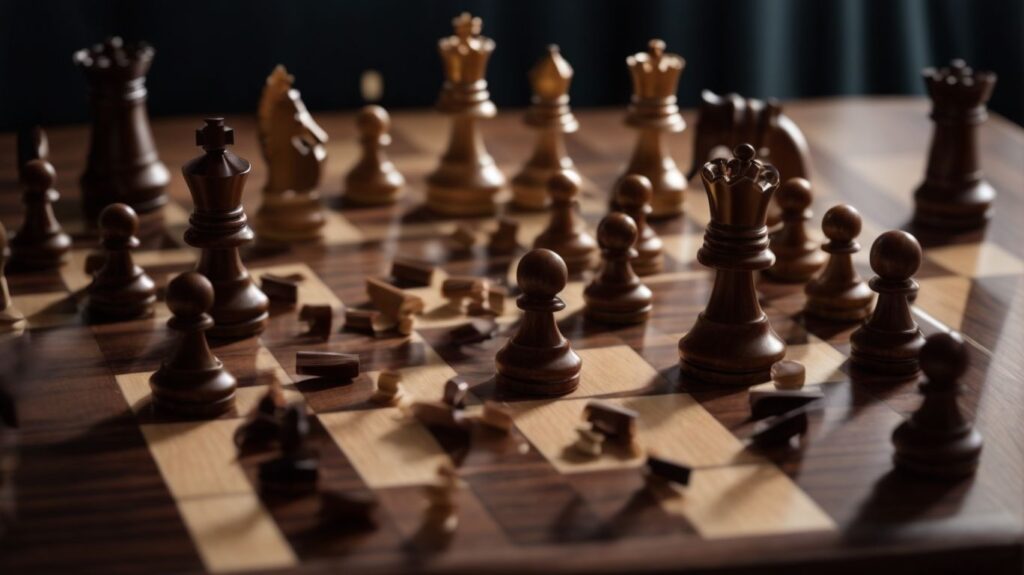
Embarking on the journey of learning chess involves understanding the fundamentals of the game, exploring online tutorials, and immersing oneself in the rich heritage of chess strategies and tactics.
One of the critical elements in chess is mastering the movements of each piece, from the powerful queen to the humble pawn. As a beginner, it’s essential to grasp concepts like controlling the center of the board, developing pieces efficiently, and recognizing common tactical motifs, such as pins and forks.
Online platforms like Chess.com and Lichess offer a wealth of resources for players of all levels. These sites provide interactive lessons, puzzles, and the opportunity to play against opponents worldwide, honing your skills and fostering a deeper understanding of the game.
Understanding the Chess Board and Pieces
To master chess, one must comprehend the intricacies of the chessboard layout and the unique movements of each piece, laying the foundation for strategic gameplay and tactical maneuvers.
The standard chessboard consists of 64 squares in an 8×8 grid, alternately colored in light and dark shades. Each player starts with 16 pieces, including pawns, rooks, knights, bishops, a queen, and a king, positioned on the two rows closest to them.
Pawns move forward one square but capture diagonally. Rooks can move horizontally or vertically across the board. Knights have a unique ‘L’ shaped move, while bishops can diagonal any number of squares.
The queen combines the powers of the rook and bishop, making her the most versatile piece, while the king’s movement is restricted to one square at a time.
Learning the Basic Rules and Moves
Grasping the fundamental rules and essential moves of chess is essential for navigating the complexities of the game, enabling players to execute strategies and outmaneuver their opponents effectively.
One of the core principles in chess is understanding checkmate, where a player’s king is under direct attack and cannot escape capture. Achieving checkmate is the ultimate goal of the game and requires careful positioning and foresight.
Another crucial concept is castling, a strategic move that allows the king to safely move to a more secure position while also developing the rook.
Mastering pawn structure is vital as pawns form the foundation of a player’s defense and can shape the course of the game. By improving their understanding of these fundamental concepts, players can elevate their gameplay and enjoy a deeper appreciation of the strategic intricacies of chess.
Practicing with Online Tutorials and Chess Apps
Harnessing the power of online tutorials and chess applications enhances players’ skills and knowledge, offering interactive learning experiences and practice opportunities to refine their gameplay strategies.
By looking into virtual lessons guided by expert players, individuals can gain valuable insights and tips to elevate their performance on the chessboard. Chess platforms and apps also provide a wide array of resources such as puzzle solving, game analysis, and matchmaking services, fostering a dynamic environment for honing one’s abilities. The convenience of accessing these tools at any time allows players to fit training into their schedules seamlessly, accelerating their learning curve and helping them stay ahead in the competitive chess arena.
Joining a Local Chess Club or Tournament
Engaging with the local chess community through clubs and tournaments not only expands one’s network but also provides valuable opportunities for friendly competition, skill advancement, and social interaction.
Participating in these chess events can help individuals of all ages improve their decision-making skills, strategic thinking, and ability to anticipate opponents’ moves. The structured environment of clubs and tournaments nurtures discipline and sportsmanship while fostering a sense of belonging within a supportive community. The diverse range of players you encounter can enhance your gameplay by exposing you to different styles and tactics.
Famous Chess Players and Tournaments
The world of chess is illuminated by iconic players and prestigious tournaments that showcase the pinnacle of strategic brilliance, tactical mastery, and competitive spirit within the game.
Every move made by these chess virtuosos reverberates across the board, captivating audiences worldwide and shaping the very fabric of the sport. Legendary individuals like Garry Kasparov and Bobby Fischer have left an indelible mark on the history of chess, their innovative gameplay and unwavering determination inspiring generations of aspiring players.
- From the intensity of the World Chess Championship to the tradition-rich Tata Steel Masters, these tournaments serve as battlegrounds where champions are forged and legacies are solidified.
The strategic depth and psychological warfare of these competitions not only highlight the players’ skill but also offer a glimpse into the intricate beauty of chess as an art form.
Garry Kasparov
Garry Kasparov stands as a legendary figure in the realm of chess, known for his strategic brilliance, unmatched gameplay, and contributions to the evolution of the game.
Garry Kasparov’s exceptional rise to dominance in the chess world started at a young age, displaying his exceptional talent and dedication to the game.
- Throughout his illustrious career, Kasparov shattered records, including becoming the youngest ever undisputed World Chess Champion at the age of 22.
- His dynamic playing style, characterized by bold sacrifices and innovative strategies, revolutionized modern chess tactics, inspiring generations of players worldwide.
Magnus Carlsen
Magnus Carlsen is a chess prodigy whose strategic prowess, tactical acumen, and consistent performance have solidified his status as a modern-day chess icon.
His journey to the top of the chess world began at a young age, showcasing his innate talent and exceptional devotion to the game. Carlsen’s impressive list of accomplishments includes numerous championship titles, such as the coveted World Chess Championship. Renowned for his innovative playing style, he has revolutionized the way chess is approached, blending traditional strategies with inventive moves.
Along with his personal achievements, Carlsen has significantly influenced the contemporary chess scene, inspiring a new generation of players to push boundaries and think outside the conventional realm of the game. His presence in the chess world continues to set a high standard of excellence, drawing admiration and respect from competitors and fans alike.
The World Chess Championship
The World Chess Championship stands as the pinnacle of competitive chess, gathering the finest players on a global stage to compete for the prestigious title and showcase their strategic brilliance.
Established in 1886, the World Chess Championship has a rich history that dates back over a century. Its format has evolved over time, incorporating various systems such as matches, tournaments, and knockout events. Throughout the years, the championship has witnessed legendary players like Garry Kasparov, Bobby Fischer, and Magnus Carlsen claim the coveted title. These champions have left an indelible mark on the chess community, inspiring generations of players and enthusiasts to pursue excellence in the game. The World Chess Championship continues to captivate audiences worldwide, highlighting the intellectual depth and complexity of chess as a sport.
Conclusion: The Beauty and Benefits of Chess
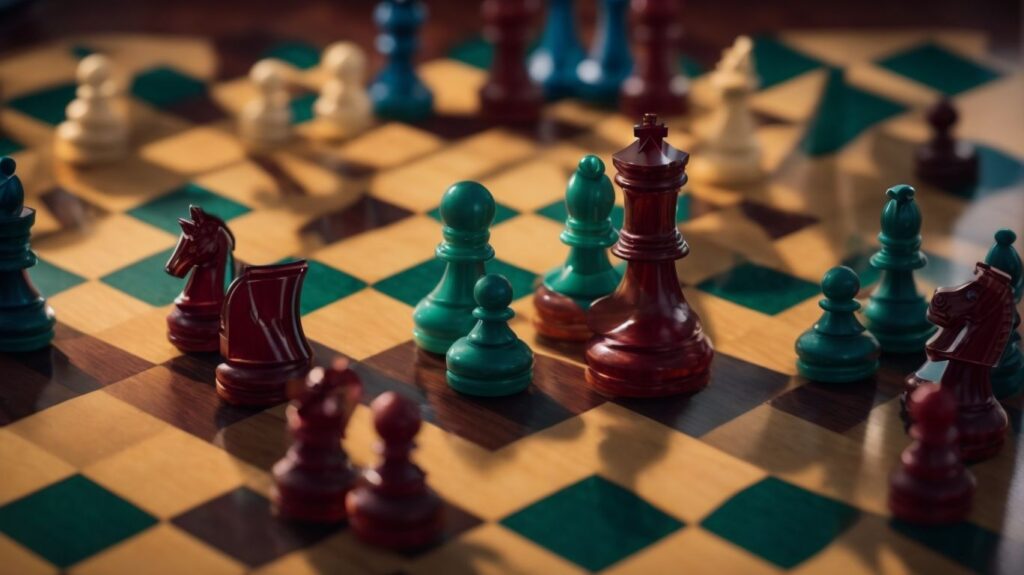
Chess transcends being merely a game, embodying a harmonious blend of intellectual challenge, strategic depth, and social interaction that enriches the lives of players and enthusiasts worldwide.
Chess, with its intricate gameplay and profound history, serves as a timeless pursuit that sharpens critical thinking, decision-making, and problem-solving skills. The game fosters creativity, patience, and resilience, instilling virtues that extend far beyond the confines of the chessboard.
Furthermore, chess acts as a universal language that bridges cultural barriers and connects people from diverse backgrounds, promoting understanding and camaraderie. Its benefits extend to mental acuity and emotional intelligence, offering a holistic approach to personal development and social engagement.
Frequently Asked Questions
Why play chess?
Chess is more than just a game – it offers numerous benefits for both the mind and body. Here are some reasons why you should start playing chess today.
What are the mental benefits of playing chess?
Playing chess requires strategic thinking, problem-solving, and decision-making skills. It also helps improve memory, concentration, and creativity.
Is chess only for smart people?
Anyone can learn and play chess, regardless of their intelligence level. In fact, playing chess can help improve your cognitive abilities and make you smarter.
Can chess help with anxiety and stress?
Yes, playing chess can be a great way to relax and relieve stress. Focusing on the game can help clear your mind and reduce anxiety.
What age is appropriate to start playing chess?
Chess can be enjoyed by people of all ages. It is recommended to start learning the game around the age of 5 or 6, but it’s never too late to start.
Are there any physical benefits to playing chess?
While chess may not seem physically demanding, it can improve hand-eye coordination, dexterity, and fine motor skills. It also promotes good posture and can help prevent hand and wrist injuries.
